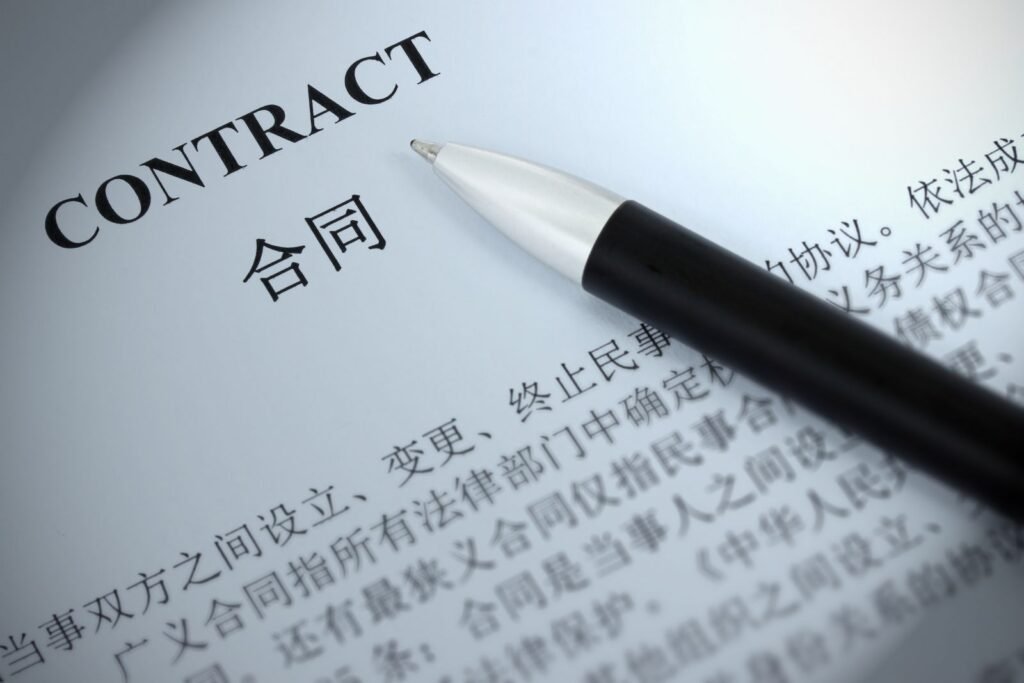In today’s globalized business environment, international collaborations have become the norm. As businesses constantly seek opportunities across borders, safeguarding shared information becomes critical, especially in manufacturing powerhouses like China. When comparing the effectiveness of the traditional Non-Disclosure Agreements (NDAs) with the more localized Non-Use, Non-Disclosure, and Non-Circumvention (NNN) Agreements, the latter offers distinct advantages. Let’s explore the benefits of NNN agreements in the Chinese business landscape.
Table of Contents
Toggle1. Comprehensive Protection
NNN agreements offer a more encompassing layer of protection than traditional NDAs. While NDAs predominantly focus on preventing disclosure, NNN agreements ensure:
- Non-Disclosure (ND): Maintaining the confidentiality of shared information.
- Non-Use (NU): Prohibiting the receiving party from leveraging the shared information for their own advantage.
- Non-Circumvention (NC): Restricting the receiving party from bypassing the sharing party to directly engage with potential partners or clients.
This multifaceted protection guarantees a wider safeguard against potential breaches and unethical practices, crucial in a market as vast and varied as China.
2. Tailored to the Chinese Legal Landscape
Chinese courts have greater familiarity with NNN agreements than traditional NDAs. In instances of disputes, having an agreement that resonates with local legal standards and historical precedents can prove invaluable.
By using a verified Chinese version of your contract, your contract will be more enforceable in the court in China compared to a contract that is translated to Chinese and not verified before it is used in court in China. Make sure that you understand everything what is written in the Chinese version of contracts, as we often see Chinese companies adding better conditions in the Chinese version than in the English version. If you have a verified Chinese version, the Chinese company cannot come up with excuses for not being clear of what they signed.
3. Addressing Manufacturing Specificities
Many businesses venture into collaborations with Chinese entities primarily for manufacturing. An NNN agreement can explicitly state that the manufacturer cannot produce the product for any other entity, ensuring that the design and concept remain exclusive.
4. Clear Consequences for Breaches
NNN agreements designed for the Chinese market usually outline explicit consequences and penalties for any breaches, including stipulated monetary damages. This clarity not only acts as a deterrent against violations but also streamlines enforcement.
5. Enhanced Intellectual Property Safeguards
In regions where IP rights can be a significant concern, like in China, where there is a lot of copying and a first-to-file system where Chinese companies often protect the IP of foreign companies, NNN agreements offer an added layer of protection. They ensure the partner or manufacturer doesn’t infringe upon the shared intellectual property rights, including filing for patents, trademarks, or copyrights based on the shared content or any derivatives.
6. Facilitating Genuine Collaborations
By setting forth clear boundaries and repercussions, NNN agreements lay the groundwork for a sincere and transparent collaboration. Those entering into such agreements are well aware of the expectations, minimizing the likelihood of exploiting any ambiguities.
Conclusion
While NDAs remain a staple in many international business interactions, the NNN agreement is clearly the preferred choice for those venturing into the Chinese market. Its in-depth protection, congruence with the Chinese legal system, and precise consequences offer businesses an efficient and effective tool for establishing trustworthy partnerships in China.
FAQs
1. What are NNN Agreements? NNN agreements are Non-Use, Non-Disclosure, and Non-Circumvention contracts tailored mainly for the Chinese market. They ensure that information shared between parties remains confidential, isn’t used for unauthorized purposes, and prevents one party from bypassing another to engage directly with potential partners or clients.
2. How do NNN Agreements differ from traditional NDAs? While traditional NDAs focus primarily on preventing disclosure of information, NNN agreements provide a broader protection, covering non-disclosure, non-use, and non-circumvention.
3. Why are NNN Agreements more suitable for the Chinese market? NNN agreements are tailored to the Chinese legal landscape. They address specific manufacturing concerns prevalent in China, provide clear consequences for breaches, and ensure enhanced intellectual property safeguards, making them more effective and enforceable.
4. What benefits do NNN Agreements offer in terms of intellectual property? NNN agreements provide an added layer of IP protection in regions where such rights can be a significant concern. They ensure that partners or manufacturers don’t infringe upon the shared intellectual property rights or file for patents, trademarks, or copyrights based on the shared content or derivatives.
5. Can NNN Agreements foster better partnerships? Yes, by clearly outlining expectations, boundaries, and consequences, NNN agreements set the groundwork for transparent and genuine collaborations. Parties are well-aware of the agreement’s terms, reducing the chance of exploiting ambiguities.
6. Do Chinese courts recognize NNN Agreements? Yes, Chinese courts are more familiar with NNN agreements than traditional NDAs, making them more enforceable and in alignment with local legal conventions.
7. Are there specific consequences for breaching NNN Agreements? NNN agreements tailored for the Chinese market typically detail explicit penalties for breaches, including stipulated monetary damages, offering a clear deterrent and a streamlined process for enforcement.








